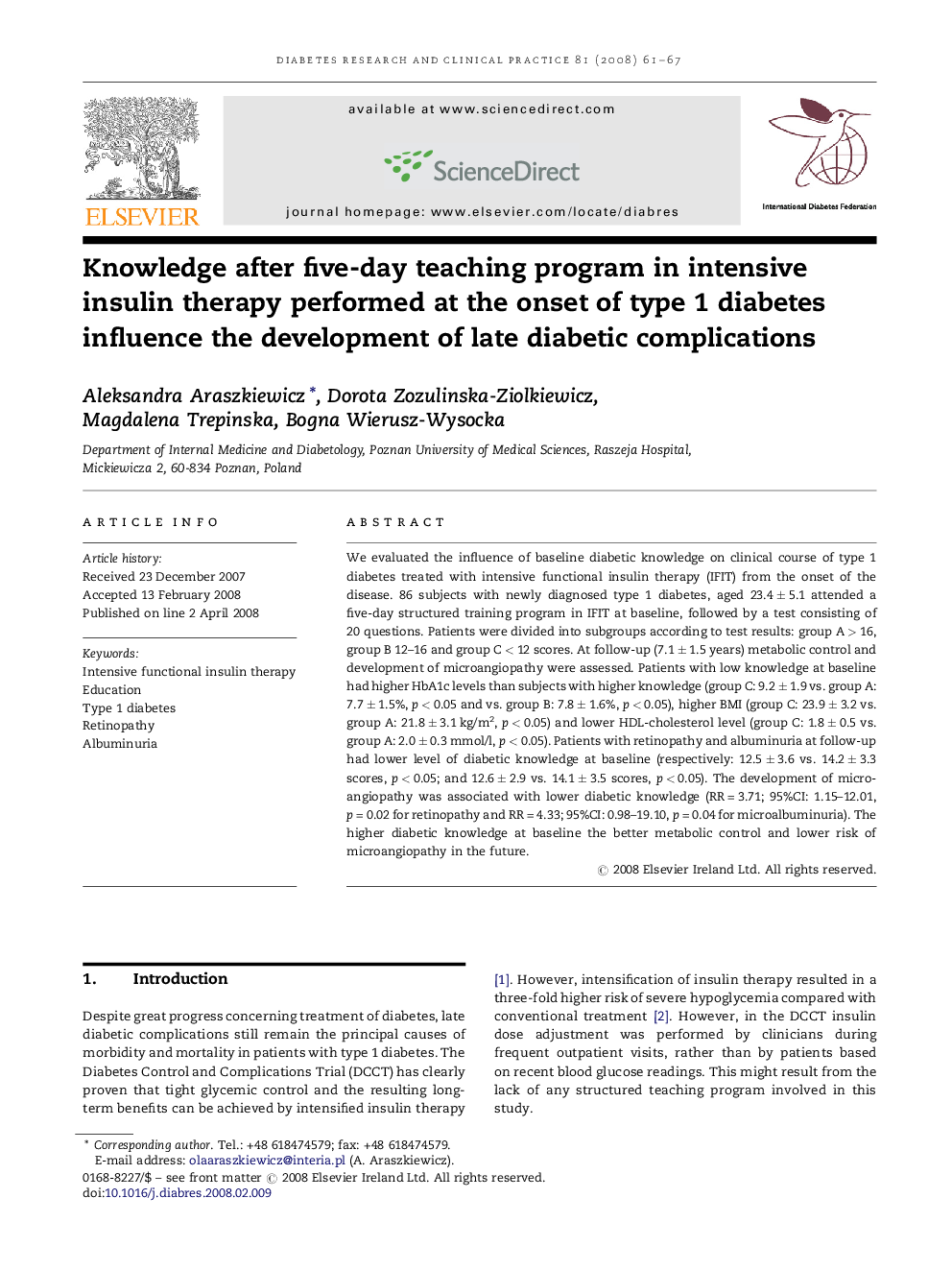| Article ID | Journal | Published Year | Pages | File Type |
|---|---|---|---|---|
| 2798178 | Diabetes Research and Clinical Practice | 2008 | 7 Pages |
Abstract
We evaluated the influence of baseline diabetic knowledge on clinical course of type 1 diabetes treated with intensive functional insulin therapy (IFIT) from the onset of the disease. 86 subjects with newly diagnosed type 1 diabetes, aged 23.4 ± 5.1 attended a five-day structured training program in IFIT at baseline, followed by a test consisting of 20 questions. Patients were divided into subgroups according to test results: group A > 16, group B 12-16 and group C < 12 scores. At follow-up (7.1 ± 1.5 years) metabolic control and development of microangiopathy were assessed. Patients with low knowledge at baseline had higher HbA1c levels than subjects with higher knowledge (group C: 9.2 ± 1.9 vs. group A: 7.7 ± 1.5%, p < 0.05 and vs. group B: 7.8 ± 1.6%, p < 0.05), higher BMI (group C: 23.9 ± 3.2 vs. group A: 21.8 ± 3.1 kg/m2, p < 0.05) and lower HDL-cholesterol level (group C: 1.8 ± 0.5 vs. group A: 2.0 ± 0.3 mmol/l, p < 0.05). Patients with retinopathy and albuminuria at follow-up had lower level of diabetic knowledge at baseline (respectively: 12.5 ± 3.6 vs. 14.2 ± 3.3 scores, p < 0.05; and 12.6 ± 2.9 vs. 14.1 ± 3.5 scores, p < 0.05). The development of microangiopathy was associated with lower diabetic knowledge (RR = 3.71; 95%CI: 1.15-12.01, p = 0.02 for retinopathy and RR = 4.33; 95%CI: 0.98-19.10, p = 0.04 for microalbuminuria). The higher diabetic knowledge at baseline the better metabolic control and lower risk of microangiopathy in the future.
Related Topics
Life Sciences
Biochemistry, Genetics and Molecular Biology
Endocrinology
Authors
Aleksandra Araszkiewicz, Dorota Zozulinska-Ziolkiewicz, Magdalena Trepinska, Bogna Wierusz-Wysocka,
